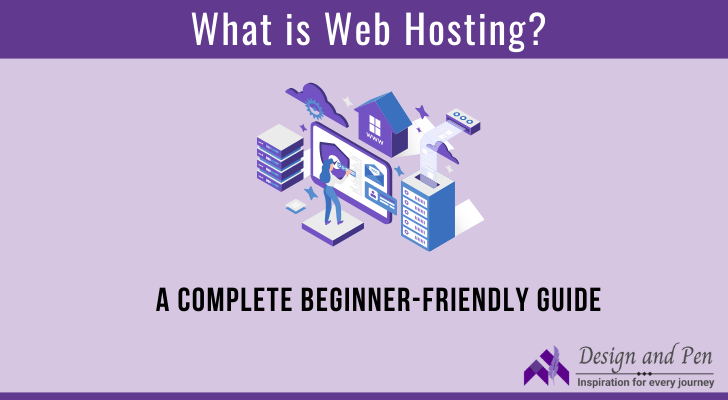Hey Friend,
With this article, you will get insights into the pros and cons of free vs paid blogging platforms.
If you are new to the blogging journey, you might wonder, “There are so many blogging platforms, but where should I start?”. Yes, multiple options allow you to focus on writing alone, and some even offer ways to monetize your efforts.
But for beginners, it is not easy to choose the right path based on your goals and needs. Especially, if you have a passion for writing, the same can bring you an income source.
That is where I come in to help you. Keep this article as a road map for your journey. I am as passionate about writing as you are. Hence, I started blogging as my side hustle using the WordPress platform.
Thus, we will look at the comparison of popular blogging platforms and both free and paid options. By the end of this journey, you will be well-equipped to kick-start your exciting blogging adventure.
So, let’s get started.

Blogging Platforms: An Overview
In this section, we will see what makes these platforms tick and how they differ. No jargon or tech talk here—just a clear, straightforward explanation.
So, you may think, what is the deal with blogging platforms? They are the foundations of your blog, where your thoughts and ideas come to life.
But here is the first block: there are two main types of platforms: hosted and self-hosted.
Hosted Platforms:
— These are like ready-made homes for your blog. You can just get started using your email address for free. Additionally, they provide you with a space for your content and a few design options.
— You might be familiar with popular hosted platforms like WordPress.com, Blogger, and Medium.
Self-Hosted Platforms:
On the other hand, self-hosted platforms give you more control. It is like building your custom dream house from the ground up. You choose the land (web hosting), the design (themes), and the decorations (plugins).
WordPress.org is a famous self-hosted platform. I use this for my blog too. So, what are these platforms, and why do they matter for your blogging journey?
Come along with me to the next sections to see the difference between free and paid blogs.
Free Platforms for Blogging
In blogging, you will often hear two distinct terms: “free” and “paid.” For now, let us focus on the free side of things.
Free blogging platforms are like an amusement park, where you can enjoy games, rides, etc., without reaching your wallet. Similarly, they offer many features, tools, and resources without any upfront costs. While making them a fantastic starting point for bloggers who want to get into the vast ocean of online content creation.
Free platforms have hosting included. Hence, you need not opt for a separate hosting provider for your blog. While they may not provide the same level of customization as their paid options, free platforms often allow you to personalize your blog’s appearance to some extent. You can choose from various themes and layouts to match your style.
Whether you are starting a personal blog, sharing your creative writing, or showcasing your photography, free platforms provide an excellent option for your online presence.
So, if you are looking to kick-start your blogging adventure without opening your wallet just yet, free platforms have got you covered.
Remember, every platform has its strengths and limitations, and it’s important to choose one that aligns with your goals. Let me walk you through those in the next sections.
Pros of Free Blogging Platforms
Using free blogging platforms has its fair share of advantages.
They offer a range of benefits, especially for those who are new to the blogging world or looking to share their content without a financial commitment. Here are a few pros to consider:
1. User-Friendly Interface
— When we are beginning something, we don’t want to complicate things more right? Hence, most free platform interfaces are designed to be user-friendly, even for those without technical expertise.
— You can create and manage your blog without dealing with the complexities of web hosting or coding. With this, your main focus will be only on creating valuable content.
2. Quick Setup
— If you need to develop your blog using custom PHP, it takes a lot of effort, time, and cost. Also, you need to have more technical knowledge for development. For this, you should spend hours together.
— All these difficulties can be easily bypassed with the help of free blogging platforms but under certain limitations. You can easily get started and set up with a few drag-and-drop options.
3. Experimentation
— To learn blogging business under blogging platforms, you need not pay money. All that you need is an email address to create an account and access the assets and interface.
— But if you are not choosing the blogging platforms, you need to pay a lot of money to go for courses, and spend a lot of time understanding and developing on your own. Due to this, a lot of time will be wasted in A/B testing.
Here, in free blogging platforms, everything is tested already and is in place. The only thing you need to do is, use the available assets based on your requirements. In our early stages, we all want to explore and experiment to find what fits us the best.
Do you agree? And, if you’re new to blogging, a free platform provides an excellent space to experiment, learn, and refine your skills. You can discover what works best for your content and style before considering a paid option.
Along with the pros, there are certain limitations to these free options. In the next section, we’ll explore some of the drawbacks of these platforms to provide a balanced view for you to make an informed choice.
Cons of Free Blogging Platforms
While free blogging platforms offer many benefits, they also come with certain limitations and drawbacks.
It’s essential to consider these factors before committing to a free platform for your blogging journey.
Here are some of the cons associated with free blogging platforms:
1. Limited Customization
— Let me give you an example of WordPress.com free blogging platform. Even if they give you a few themes and plugins, you cannot customize every part of your blog using those.
— If I want to add any animation to my blog’s home page, it is not possible in the free blogging platforms. But, you can bring that option by taking a few more plugins. As a result, this will affect and degrade your website’s loading speed and ranking.
2. Domain Name
— If you are serious about your blogging business, the first thing is to purchase your domain name. It will cost you around Rs. 1000 per year.
— Starting your blogging on the free platforms will not ensure you the desired ranking because Google’s search engines do not take sub-domains as a priority while ranking. Hence, you need to have a fully qualified domain name to take your blogging journey professionally.
An example of a subdomain is yourblogname.wordpress.com or yourblogname.blogspot.com, which can appear unprofessional. To have a custom domain name (e.g., www.yourblogname.com), you usually need to upgrade to a paid plan.
3. Limited Monetization
— Since you are doing business on someone else’s platforms, they have their own set of terms and conditions. Due to this, you also will have limited access to monetization options.
— For example, you cannot integrate and add Google AdSense to your free blogging. Then, there is no use in starting a blogging business. I suggest you not opt for free platforms if you are serious about starting a business and want to monetize from it.
Limitations and benefits should be weighed carefully.
With this, you can determine if a free blogging platform is the right choice for your goals. Also, if you’re looking for more control, branding, and monetization opportunities, you may consider self-hosted (paid) platforms.
Free blog vs paid blog: which is better? We will explore the same in the coming section.
Self-hosted (paid) Platforms
So far, I tried to explain the limitations of starting a blog on free blogging platforms. In the end, everyone wants to make money from their blog. This is highly limited to free blogging platforms.
Now, let us see the other version, going with the self-hosted platforms. Along with free versions, this also has some demerits. You will what they are in the upcoming section.
Having your self-hosted blog is like being an entrepreneur in the blogging world since you are in charge of everything. Self-hosted platforms, like WordPress.org, offer bloggers more freedom and power.
With these platforms, you’re not just a tenant; you’re the landlord. You get to build your blog the way you want. And decide everything – from the look and feel of your blog to the plugins you want to use, you are the boss.
Along with that, self-hosted blogs have their unique domain names, like mine designandpen.com. Also, you have the freedom to run ads, sell products, or do whatever you like to generate income.
Here, I have given a small gist about self-hosted platforms. But as with everything, let us break pros and cons.
Pros – The Perks of Being Self-Hosted
Going the self-hosted route brings some sweet advantages:
1. Full Creative Freedom
— The first thing is, it is your digital space. In the free platforms, you are doing business with someone else’s platform by taking some of their digital space, right?
— But in the self-hosted platform, you have your domain, and hosting server which is your own virtual space. And no one will have the right to throw you out of your space.
With a self-hosted blog, you’re the artist. You can customize your blog’s appearance to match your style, brand, and personality. It’s like having a canvas with no limits. I want to have complete control over my blog. Hence, I use WordPress.org (a self-hosted platform) for my blog.
There are so many WordPress themes available for bloggers based on their blogging niche. If you want to start a travel blog, you have to purchase a theme according to that.
The same with cookery blogging for example, you can purchase themes related to it accordingly. This gives you the freedom to create your niche blogging in a few minutes. You will have the full control here.
2. Earning Potential
— Here, you are free to integrate any monetization methods. For example, Google Adsense, Affiliate Marketing, or you can sell ad space directly.
— However, selling ad space on the free platforms is not possible due to the limitations. Because you’re not limited by hosting provider rules, you can monetize your blog however you want.
Apart from that, if you want to make your digital product, you can sell that using your blog. E.g.: e-books, PDFs, courses, etc.,
You are with me till here, great! But as always, we have drawbacks for self-hosted platforms too.
Cons- The Challenges of Being Self-Hosted
Of course, self-hosted platforms come with their own set of challenges:
1. Technical Knowledge
— In self-hosted platforms, you must be able to manage the domain name registration process, hosting registration process, connecting the domain with hosting, and accessing the control panel.
— Seeing this, do not panic. It is not too technical stuff, but a basic one to access and manage your space. Ultimately, you have to learn and gain knowledge.
First of all, you have to find a registrar, and hosting provider then register it and set up your full blog on your own. But in the free platforms, you do not need to do all this process. Create your account and log in with your simple Gmail address in a few minutes.
2. Costing Factor
— While freedom is fantastic, it comes with a price. A domain name costs you around Rs.1000/-, and hosting around Rs.1000/- per year. WordPress theme will cost you around Rs.5000-10,000/-.
— But do not think of this as an expense but think of it as an investment. Because no business starts with 0/- investment right? If you are tight on the budget side, at least you need to invest Rs.10,000/- in your blog to take it to a professional level.
So, are you leaning towards the freedom of self-hosting or the convenience of hosted platforms?
Let me help you decide in the next section.
How to choose the right blogging platform?
Till now, we have seen the pros and cons of free vs paid blogging platforms.
Let’s figure out how to choose the perfect one for your needs
1. Define Your Blogging Goals
I will give you a short example. If you are a student and want to start blogging, you can choose to go with free blogging platforms. My previous article Top 10 best blogging platforms, can be your guide here.
Ex: WordPress.com, Blogger, Medium
Or if you want to start blogging to earn passive income or as a side hustle, then you should opt for a self-hosted platform to take it professionally.
Ex: WordPress.org
Start by thinking about why you want to blog. Are you sharing your thoughts, making money, or promoting a business?
Knowing your goal is like setting your destination on a map. If you ever feel lost, your goal will help you to move forward.
2. Budget Wisely
— As discussed in the above costing factor for the self-hosted platforms, your budget matters. Free platforms are cost-effective but have limitations. Self-hosted platforms offer more but come with expenses.
— Once you decide which platform you want to go with, consider its budget. Ultimately, for a self-hosted blog setup, you need to invest around Rs.10,000/-. So, consider your budget and make a wise decision. Imagine you are deciding between renting and owning a house.
3. Gauge Your Tech Skills
Now it is the time for the main analysis. How comfortable are you with technology? If you are tech-savvy, a self-hosted platform might be exciting. If not, an easy-hosted platform could be your best choice.
Or, like me, if you have a goal of freedom and control over your blog and want to earn from it, put your initial efforts into learning. Trust me, your efforts will pay you in the future.
By analyzing the factors this way, you will be well-prepared to make an informed choice, whether it is a free or self-hosted blogging platform.
In the next section, we will wrap things up with a short comparison of the pros and cons.
Free vs Paid Blogging Platform – A Short Comparison
In this section, we’ll briefly compare taking pros and cons of free vs paid blogging platforms, to help you make the right choice.
| Feature | Free Platforms | Paid Platforms |
|---|---|---|
| Customization Options | Limited design and layout | Extensive design control, themes, and plugins |
| Domain Name | Subdomain provided by the platform (e.g., yourblogname.wordpress.com) | Custom domain name (e.g., yourblogname.com) |
| Branding Capabilities | Platform branding may be present | Full branding control and removal of platform logos |
| Impact on Blogging Objective | Suitable for hobby bloggers or those on a tight budget | Ideal for professional bloggers, businesses, or anyone seeking full control |
This table will give you a snapshot of the main differences between free and paid blogging platforms.
In our conclusion, we will sum it all up, ensuring you are ready to embark on your exciting blogging journey.
Conclusion
Great, we have finally arrived at an end in getting an idea of pros and cons of free vs paid blogging platforms. In conclusion, the choice between free and self-hosted blogging platforms comes down to your goals and budget – which one is better to earn.
As I said to you earlier, if you want to step into blogging to explore your passions or share your personal experiences, free platforms offer a hassle-free start. They are like a trial period, which allows you to discover the joys of blogging without any initial investment.
On the other hand, if you are committed to turning your blog into a business, monetizing your content, or building a professional brand, self-hosted platforms are the way to go. While they come with hosting and maintenance costs, they provide full customization, personalized domain names, and extensive branding control.
The world of blogging is diverse, and the platform you choose should align with your aspirations.
My goal is to make blogging my side hustle. For this, it should be in a professional way to earn from it. Hence, I chose the self-hosted WordPress.org platform for my blog based on my goal.
So, whether you opt for a free platform to nurture your writing passion or embark on a self-hosted journey to establish your brand, remember that every blog is a unique expression of its creator.
Choose the path that fits your dreams and watch your blogging journey evolve.
Happy Blogging!





